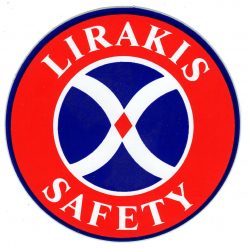This conversation is not over. I am certain many of you have your own opinions as to what happened, what should have happened and what should be done about it.
Amidst the terrible grief of our friends in San Francisco over the loss of five crew of Low Speed Chase comes the inevitable overreaction from the government and investigation by self-proclaimed experts. A boat is rolled in big surf and it’s time to ban racing outside the Gate for two months? When’s the last time fishing was banned when some johnboat was blown out to sea and lost? Loss of life is horrible, but even worse is loss of freedom. None of the dead would have wanted that, and we hope the folks at the USCG and US Sailing remember that. Anarchist “keel haulin” wrote maybe the most difficult analysis of this matter we have seen yet, but it rings true…from the “Wide Open Discussion” thread. Also, take the time to learn more about what happens to big waveswhen they come to shore.
 I don’t post on this forum often; but I see lots of argument about whether Low Speed Chase was too close, and what should have been done, what equipment should be worn, etc. I’m going to go on the record here and say that everything I have read and seen about where boats were on the Crewed Farallones tells me that ALL of the boats that transited the area were in too close and that LSC got caught in a large set. I hate to burst bubbles about what people think is safe, but I think this tragedy should burst a few; and hopefully the skippers who go racing there next time will consider what I am going to say here before they also decide to round the windward side of SE Farallone two to three waves away from the break.
I don’t post on this forum often; but I see lots of argument about whether Low Speed Chase was too close, and what should have been done, what equipment should be worn, etc. I’m going to go on the record here and say that everything I have read and seen about where boats were on the Crewed Farallones tells me that ALL of the boats that transited the area were in too close and that LSC got caught in a large set. I hate to burst bubbles about what people think is safe, but I think this tragedy should burst a few; and hopefully the skippers who go racing there next time will consider what I am going to say here before they also decide to round the windward side of SE Farallone two to three waves away from the break.
I’m going to say this once. It is the responsibility of the skipper of a vessel to ensure the safety of the vessel and her crew. Regardless of what happens; or how it happens. It makes little difference if the wave was ‘freak’ or larger than average. It is still the responsibility of the skipper to ask himself “WHAT IF”. With regard to the LSC tragedy; the WHAT IF should have been asked about the possibility of ANY FAILURE or sea condition that would put the boat into the danger zone. This question was not asked by the LSC skipper AND THE BOATS HE WAS FOLLOWING. Everyone else got lucky that a big set did not arrive and smash them into the shore.
The NW end of SE Farallone is a reef. Anything 10 fathoms or less is “reef depth” and a potential break zone. The topology of the break zone is similar to the Mavericks reef. On days when there are large seas; this area would look like a big day at Mavericks. If the seas are 12-15 feet, large sets of waves that are 20-25 feet should be expected. In normal offshore sailing conditions these swells are noticed but not dangerous. When they run up onto a reef (a shallowing zone) they turn into 30-40′ monsters. They break much further out than the ‘normal’ break zone. These waves are not uncommon and they are not to be ‘unexpected’. Based on photos and looking at charts; being 125 yards outside of the break zone would put the LSC and other transiting boats in a depth of 30-40 feet. It’s too close to a lee shore/reef with large breakers. I’m sorry but that’s just the way it is. Mistakes were made by the skippers who sailed through the area in those conditions. We all need to accept it and learn from it; and stop bickering about what people don’t want to accept (that the skippers who sailed through that reef were all doing the wrong thing).
Waves of this magnitude put all bets off in terms of survivability on the boat, tethered on, or off. The three that survived were lucky. Everyone onboard were in grave danger before the wave broke. In a breaking surf wave, jacklines, tethers, and harnesses, will snap like weak rubber bands. They are not designed to withstand these types of loads. If they did stand up to it the forces on the human body would be deadly. While I agree that staying onboard is paramount to crew safety (“don’t fall off the boat”); there is another cardinal rule that supersedes it. It’s “give lee shores a wide berth”. If that had been done we would not be talking about what the sailors should be wearing. If change is to come from this (and it should) it should be for a call from within the racing community for racecourse laylines/waypoints or off-limits depth contours.
I’m pretty sure the USCG suspended racing so the racing organizations can get their shit together and come up with some ‘lessons learned’ mitigation for this tragedy; so that public outcry can be tamed. Otherwise expect the USCG to be up everyone’s ass who goes racing; especially racers going outside of the bay.
